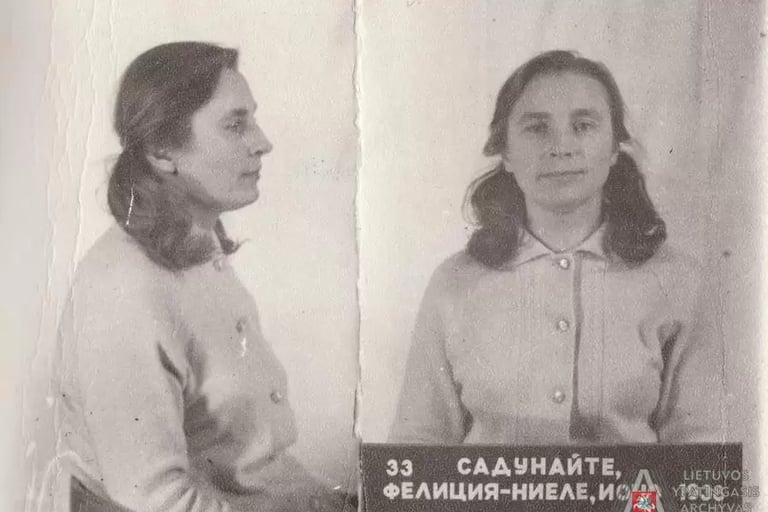Lukiškės Prison
At last, we have reached Lukiškės Prison, which hosted many interrogations and incarcerations of dissidents. Architecturally, the building complex is truly impressive – just look at that magnificent bysantine-style church! Even more magnificent are the stories permanently soaked into the walls of these buildings.
Fun fact – I learned Morse code while I was here. Not because I had nothing better to do, but because that was the only way to send messages to other political prisoners. There are metal heating pipes all over the place and we used to knock on them to communicate. But we’re not here to talk about me. No…we‘re here to talk about someone very special.


Nijolė Sadūnaitė – a well-humoured nun who was actively writing for the Chronicle of the Catholic Church of Lithuania – also spent some time here at Lukiškės. Seems her neighbour heard the sound of a typewriter coming from Nijolė’s room. The neighbour called the KGB and the nun was arrested. That’s how easy it was to get caught in those days. This is why we always had to be so careful. For the next 10 months, Nijolė was kept at the detention centre and the KGB palace. “It’s so convenient to live at the palace,” she recalled. “You don’t have to pay rent or electric bills, no need to buy food, either!”
Nijolė was quite stubborn while at the detention centre – she didn‘t say a word about the Chronicle. See, if an interrogator couldn‘t get anything out of a dissident, he would get replaced by someone else. Nijolė recalled that she went through a few interrogators. When a new one would arrive, she would always be honest with him – “I haven‘t said a word until now, I‘m not going to say anything to you, either.” Instead, the nun would offer a different conversation piece, such as the weather.


Nijolė said she never felt as close to God as she did while at Lukiškės. She would sing catholic songs, dance, and exercise, all of which really annoyed the prison guards. She was no ordinary prisoner. In fact, she was so extraordinary that she told the prison guards she needed to stay in shape because as soon as she left the prison, she’ll keep working for the Chronicle !
All because of a few pages of the Chronicle found at her apartment, Nijolė was later sentenced to three years at a women‘s strict regime camp in Mordovia and then three years in Siberia. She came back to the Lithuanian Soviet Republic in 1980 and, just as she promised, continued working with the Chronicle.
Unfortunately, my friend Nijolė passed away on 31st of March, 2024, before I could introduce you. Many of my friends have passed, but, luckily, their stories can live on now that I've shared them with you.
If you want to feel the atmosphere of the former interrogation and detention centre yourself, you can book a tour online. Or you can simply have a stroll around the architecturally beautiful building – it‘s easier now that you know you can get out at any moment! I‘ll be waiting for you here. Let me know when you‘re ready to continue.




